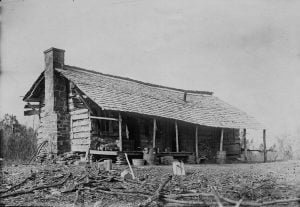Cooks Leave
The German man and wife who had been employed by Mr. G. and brought from Cincinnati, when he first came to Fort Coffee, became dissatisfied. They had been employed to do the cooking and chamberwork of the institution, but the situation did not please them. They had no German friends with whom to associate, and were anxious to return to Cincinnati. We were reluctant to let them go; they were pious, intelligent, and faithful; and we had become very much attached to them. But they would not be reconciled, and so returned to their former home and friends. Our plans … Read more

